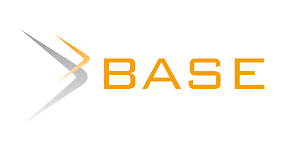The Role Of The School Lıteracy Envıronment In Enhancıng The Readıng Interest
Keywords:
Literacy environment, Reading interest, Elementary studentsAbstract
This study aims to examine the role of the school literacy environment in fostering students’ reading interest at the sixth grade of SD IT Insan Mulya Kotagajah, as well as to identify its supporting and inhibiting factors. The study employs a descriptive qualitative approach, with data collected through observation, interviews, and documentation involving 30 sixth-grade students, three teachers, and the school principal as research subjects. The findings reveal that the literacy environment was developed through classroom reading corners, mini libraries, a “15 minutes reading before class” program, and scheduled literacy competitions. These activities effectively improved students’ reading interest, as indicated by increased frequency of book borrowing, active participation in literacy events, and greater diversity in book choices. Supporting factors include active teacher and principal involvement, parental encouragement, and adequate literacy facilities, while inhibiting factors involve inconsistency in students’ reading habits and limited book collections aligned with their interests. Development suggestions include expanding the variety of books, integrating digital reading resources, and implementing structured reading routines to maintain student engagement. Overall, the school literacy environment plays a strategic role in enhancing reading interest and contributes to building a sustainable literacy culture.
Downloads
References
Abdullah, S. M., et al. (2019). Social cognitive theory: A Bandura thought review published in 1982-2012. Psikodimensia, 18(1), 85-100.
Ansani, & Samsir, H. M. (2022). Teori pemodelan Bandura: Implementasi model pemodelan dalam pembelajaran. Jurnal Multidisiplin Madani, 2(7), Article 692. https://doi.org/10.55927/mudima.v2i7.692
Bandura, A. (1986). Social foundations of thought and action: A social cognitive theory. Prentice-Hall.
Brown, A., & Irwin, T. (2020). Encouraging adolescents to read: Strategies for school environments. Journal of School Literacy, 14(3), 210-227.
Dewi, A. C., et al. (2023). Pendidikan moral dan etika mengukir karakter unggul dalam pendidikan. IJOCE: Indonesia Journal of Civic Education, 3(2), 69–76. https://doi.org/10.31539/ijoce.v3i2.8195
García, P., & Ng, R. (2022). Parental involvement, school libraries, and reading attitudes in primary education. International Journal of Educational Research, 105, 101708. https://doi.org/10.1016/j.ijer.2020.101708
Halimah, N., et al. (2024). Implementasi nilai-nilai spiritual dan moral di lembaga pendidikan. Jurnal Pendidikan, 10, 453–463.
Ilmiani, A. M., Wahdah, N., & Mubarak, M. R. (2023). The application of Albert Bandura’s Social Cognitive Theory: A process in learning speaking skill. Ta’lim al-‘Arabiyyah: Jurnal Pendidikan Bahasa Arab & Kebahasaaraban, 5(2), Article 12945. https://doi.org/10.15575/jpba.v5i2.12945
Kim, H., & Park, J. (2022). Structured reading routines and student motivation: Evidence from Asian schools. Asia Pacific Journal of Education, 42(3), 356–372. https://doi.org/10.1080/02188791.2022.2045011
Listyarini, I., & Miyono, N. (2023). Analisis pendidikan karakter melalui pembiasaan di kelas III SDN Karanganyar Gunung 02 Semarang. Jurnal Pendidikan, 32(2), 347–358. https://doi.org/10.32585/jp.v32i2.4149
Manik, S., Sembiring, M., Padang, I., & Manurung, L. (2022). Theory of Bandura’s social learning in the process of teaching at SMA Methodist Berastagi Kabupaten Karo. Jurnal Visi Pengabdian Kepada Masyarakat, 3(2), 85-96. https://doi.org/10.51622/pengabdian.v3i2.729
Mekarisce, A. A. (2020). Teknik pemeriksaan keabsahan data pada penelitian kualitatif di bidang kesehatan masyarakat. Jurnal Ilmiah Kesehatan Masyarakat, 12(3), 145–151. https://doi.org/10.52022/jikm.v12i3.102
Miswar Rasyid Rangkuti, U., Ulandari, & Siagian, N. A. (2023). Pendidikan karakter sebagai upaya membentuk generasi berkarakter unggul. Al-Mau'izhoh: Jurnal Pendidikan Agama Islam, 6(1), Article 8170. https://doi.org/10.31949/am.v6i1.8170
Mujahidah, N., & Yusdiana. (2023). Application of Albert Bandura’s social-cognitive theories in teaching and learning. Edukasi Islami: Jurnal Pendidikan Islam, 12(2), Article 4585. https://doi.org/10.30868/ei.v12i02.4585
Nuraini, D., Pratiwi, R., & Hasanah, U. (2023). Challenges in sustaining literacy culture in Indonesian schools. Indonesian Journal of Educational Research, 12(1), 44–56.
Rahman, A., & Dewi, L. (2023). Literacy competitions and intrinsic motivation in Indonesian schools. Journal of Literacy Development, 5(2), 122–134.
Ristiyani, R., & Asmawan, M. C. (2023). Pembentukan karakter peserta didik melalui kegiatan Pramuka. Journal of Education Action Research, 7(4), 535-543. https://doi.org/10.23887/jear.v7i4.68688
Smith, L., & Jones, M. (2021). School literacy environments and student reading motivation: A meta-analysis. Reading Research Quarterly, 56(4), 765-789.
Sugiyono. (2020). Metode penelitian kuantitatif, kualitatif, dan R&D. Alfabeta.
Tarsono. (2023). Implikasi teori belajar sosial (social learning theory) dari Albert Bandura dalam bimbingan dan konseling. Psympathic: Jurnal Ilmiah Psikologi, 3(1), Article 2174. https://doi.org/10.15575/psy.v3i1.2174
UNESCO. (2023). Global report on fostering literacy through school environments. UNESCO Publishing.
Wahyuningsih, P., Muhdi, M., & Miyono, N. (2023). Manajemen penguatan pendidikan karakter berkebinekaan global dan gotong-royong di SMP Negeri 39 Semarang. Jurnal Inovasi Pembelajaran di Sekolah, 4(2), 611-621. https://doi.org/10.51874/jips.v4i2.162
Widodo, H. (2022). School–parent collaboration in strengthening literacy habits: Evidence from Indonesian elementary schools. Journal of Educational Practice, 13(1), 55–67.
Widyastuti, S. H., & Hartanto, D. D. (2023). Pendidikan karakter dalam perspektif Keyogyakartaan. Jurnal IKADBUDI, 12(1), 1-17. https://doi.org/10.21831/ikadbudi.v12i1.64369















